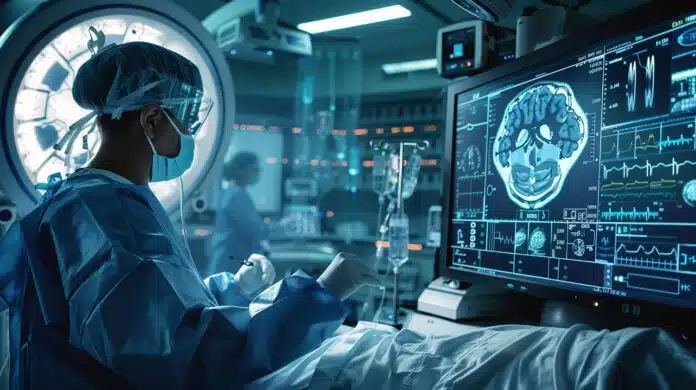
By Ashwini Sakharkar 24 Oct, 2024
Collected at: https://www.techexplorist.com/new-ai-tool-also-detects-less-frequent-diseases/91526/
AI is revolutionizing the medical field, especially in aiding doctors with disease diagnosis through imaging data. However, a significant challenge remains: AI models generally rely on large datasets, which are often only abundant for common diseases.
“It’s as if a family doctor only had to diagnose coughs, runny noses, and sore throats,” says Professor Frederick Klauschen, Director of the Institute of Pathology at Ludwig-Maximilians-Universität München (LMU).
The real challenge is accurately identifying the rarer conditions that current AI systems frequently miss or misdiagnose.
In light of this limitation, Klauschen, alongside Professor Klaus-Robert Müller from TU Berlin/BIFOLD and colleagues from Charité – Universitätsmedizin Berlin, has pioneered an innovative solution. Their groundbreaking model requires training data solely from common findings to reliably identify less prevalent diseases.
This breakthrough could dramatically enhance diagnostic accuracy and significantly reduce the workload for pathologists in the future, making a profound impact on patient care.
The innovative approach centers on anomaly detection, enabling the model to effectively identify and flag deviations by relying on precise characterizations of normal tissue alongside the most common disease findings. This means it doesn’t require specific training for less frequent cases, making it a powerful tool in diagnostics.
The researchers gathered two extensive datasets of microscopic images from gastrointestinal biopsies paired with accurate diagnoses. Impressively, the ten most prevalent findings, including healthy tissue and common conditions like chronic gastritis, account for approximately 90 percent of all cases. The remaining 10 percent cover 56 distinct disease entities, featuring numerous cancers.
For the development and assessment of their model, the researchers analyzed a staggering 17 million histological images from 5,423 cases, showcasing the robustness of their data approach.
“We compared various technical approaches, and our best model detected with a high degree of reliability a broad range of rarer pathologies of the stomach and colon, including rare primary or metastasizing cancers. To our knowledge, no other published AI tool is capable of doing this,” says Müller.
By accurately identifying standard findings and common illnesses while spotting anomalies, the advanced AI model has the potential to significantly enhance doctors’ capabilities and improve patient care over time.
Although the identified diseases still need to be confirmed by pathologists, “doctors can save a lot of time because normal findings and a certain proportion of the diseases can be automatically diagnosed by AI. This applies to around a quarter to a third of cases” says Klauschen. “In the remaining cases, AI can facilitate case prioritization and reduce missed diagnoses. This would represent huge progress.”
Journal reference:
- Jonas Dippel, Niklas Prenißl, Julius Hense, Philipp Liznerski, Tobias Winterhoff, Simon Schallenberg, Marius Kloft, and Frederick Klauschen. AI-Based Anomaly Detection for Clinical-Grade Histopathological Diagnostics. NEJM AI, 2024; DOI: 10.1056/AIoa2400468

Leave a Reply